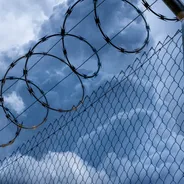Donald Trump's opinion poll numbers may be on a downward trend, but three separate projection models predict he will secure a victory in a second presidential term in 2020.
That's according to Treasury Secretary adviser Steve Rattner, who wrote an opinion column on the New York Times and touched upon three models from renowned economists which all pointed toward a Trump win in 2020.

These models also correctly predicted the last four Presidential elections, including both of Obama's victories and Trump's shock victory over Hillary Clinton back in 2016. One of those economists is Trump critic Mark Zandi, who analysed as many as 12 predictions, which looked at factors such as economic trends as well as presidential approval rating.
Zandi says Trump won in all 12 models.
"If the election were held today, Trump would win according to the models and pretty handily," Zandi explained to Politico back in March.
"In three or four of them it would be pretty close. He's got low gas prices, low unemployment and a lot of other political variables at his back. The only exception is his popularity, which matters a lot. If that falls off a cliff it would make a big difference."

Rattner, however, did add that Trump's polarising nature means that victory from 2020 is far from a given, noting that one of the models in 2016 wildly overestimated his margin of victory as a result of mixed opinions on the 45th President of the United States.
Yale economics professor Ray Fair said that Trump would normally win about 56.1 percent of a hypothetical 2020 vote, but added "that's before factoring in his personality", which in part has led to controversy over his presidency, both online and on the streets.
But on the Democrat side, who stands to be the best challenger for the former host of Celebrity Apprentice?
Well, polls indicate that it would be Joe Biden, Barack Obama's former Vice President - although it's unclear whether Biden would have the support of his entire party. Rattner also noted that despite the projection, Trump did lose the popular vote - an indication of just how his polarising popularity could lead to disappointment in 2020.

"I'm quite confident that the [prediction model] gap was a function of the generally unfavorable rankings on Mr. Trump's personal qualities," Rattner said. "In other words, a more 'normal' Republican would likely have won the popular vote by a substantial margin (instead of losing it by three million votes)."
The key factors in Trump's presidential popularity going into 2020 are the strength of the economy as well as the historical value of being an incumbent (only five of 20 sitting presidents have failed to get re-elected), and Rattner says: "The question for 2020 may well be whether Mr. Trump can overcome the majority of voters' poor perception of him and use a good economy and incumbency to win re-election."












